The Ago-Egun community in the Ilaje area of Bariga, Lagos, is a vibrant but underserved coastal settlement grappling with the severe consequences of environmental degradation. Characterized by makeshift wooden homes, stagnant floodwaters, and poor sanitation, the predominantly Egun-speaking fishing community continues to face mounting challenges worsened by seasonal flooding and ocean surge.
In a bid to address these escalating issues and advocate for environmental justice, Aiding Lives Initiative for the Vulnerable (ALIVE), a grassroots NGO, launched a community-driven cleanup campaign over the weekend. The effort is part of a broader environmental documentation and advocacy project aimed at amplifying the voices of women in Lagos’ coastal communities.
According to Pandora Umechukwu, Executive Director of ALIVE, the initiative is rooted in years of engagement with the community since 2017 through various health and social welfare programs. These include maternal and child nutrition campaigns, hygiene education, recreational events for children, and World Breastfeeding Week observances. However, a particularly devastating flood in 2023 during one of these programs spurred a new focus on climate-related vulnerability.
“We came for a program and couldn’t enter the community because everywhere was flooded,” Umechukwu said. “Women came in rain boots, some walked barefoot through dirty water. It was heartbreaking. That experience made us realize we needed to do more to raise awareness and document how ocean surge and environmental neglect are affecting these women and their families.”
Through focus group discussions and direct engagement, ALIVE has gathered testimonies of women lamenting lost livelihoods, sick children, and disrupted education due to persistent flooding. Their businesses—mostly small-scale fish smoking and petty trading—are frequently destroyed by encroaching water. Traditional methods of fish smoking also contribute to air pollution, compounding the environmental stress.
The recent community cleanup, which focused on clearing blocked drainage channels, was led by women who participated voluntarily, without incentives. “It was a communal effort,” Umechukwu noted. “The women came out in numbers because they believe in the change we’re trying to create. They’ve even proposed starting a regular cleanup initiative—monthly or bi-monthly—on their own.”
ALIVE’s ultimate goal is to ensure the Lagos State Climate Action Plan integrates the specific needs of vulnerable women in coastal communities like Ago-Egun. The organization is calling on local, state, and federal governments to support community-led solutions and to adopt inclusive climate policies that prioritize resilience and sustainability.
The initiative underscores the urgent need for environmental justice, not just in terms of ecological repair, but also in empowering women—who are often the most affected—to lead change from within their communities.
Meanwhile, residents of Ago-Egun have expressed appreciation for the community cleanup initiative led by Aiding Lives Initiative for the Vulnerable (ALIVE), while calling on the government to take more decisive steps in addressing the dire environmental conditions plaguing the area.
One resident, Miss Bademosi Omowunmi, described the current state of the community as unsanitary and hazardous, with poor drainage systems and indiscriminate waste disposal contributing to worsening health conditions. She believes the recent cleanup will help, at least temporarily, to avert disease outbreaks.
“This exercise is very important because the community is extremely dirty,” she said. “There’s stagnant water everywhere, and the drains are clogged. The cleanup is helping to create a pathway for water to flow, which should reduce the number of mosquitoes and help prevent malaria and other epidemics for now. But we really need a permanent solution.”
Another resident, Mr. Ateji Motunrayo, echoed similar concerns. He highlighted how the lack of proper waste management and infrastructure, especially during the rainy season, turns the community into a breeding ground for disease.
“Cleanliness is crucial to our health,” he said. “Flooding during rainy seasons fills the whole area with filth, and people just try to survive in the middle of it. This cleanup is a step in the right direction, and we’re grateful. But the truth is, residents alone can’t solve this. We need more support—especially from the government.”
Both residents emphasized that regular community cleanups, combined with official intervention, would significantly improve the quality of life in Ago-Egun. They also called for the inclusion of the community’s needs in Lagos State’s broader environmental and climate resilience strategies.
Their voices reinforce ALIVE’s call for inclusive climate action and environmental justice—one that recognizes the unique vulnerabilities of coastal women and communities and commits to sustained, long-term solutions.


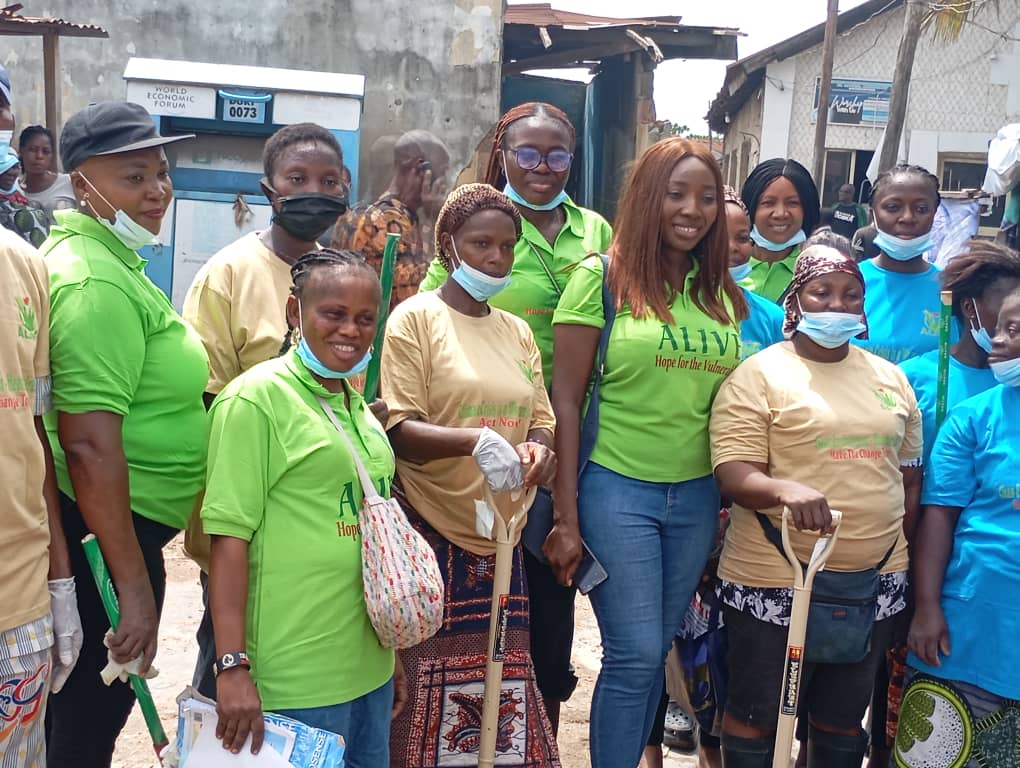
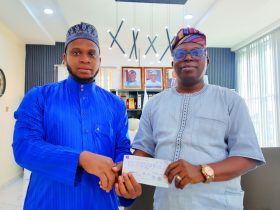
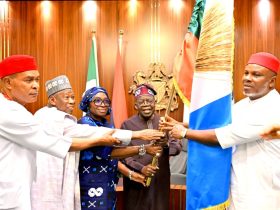
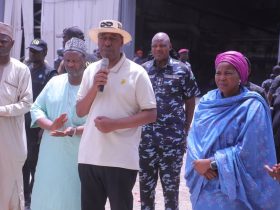
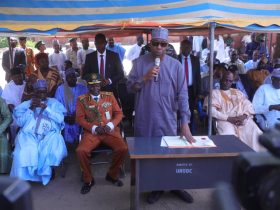



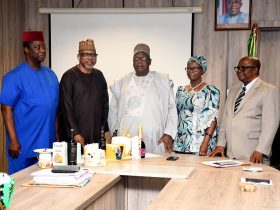
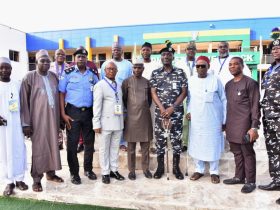
Leave a Reply